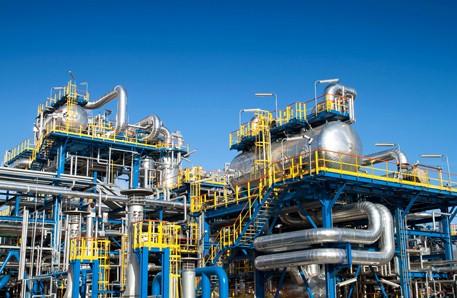Industrial safety of chemicals is a critical aspect of any industry that deals with the production, handling, and storage of hazardous substances. It encompasses a range of measures and protocols aimed at protecting the lives of workers, preventing accidents, and minimizing the impact of chemical substances on the environment. In this blog post, we will explore the importance of industrial safety in the chemical industry and discuss key strategies and practices that ensure a safe working environment.
- Understanding Chemical Hazards:
To effectively manage industrial safety, it is crucial to have a comprehensive understanding of chemical hazards. This includes knowledge of different types of chemicals, their properties, potential risks, and appropriate safety measures. Chemical hazards can include flammability, toxicity, corrosiveness, reactivity, and more. By identifying and assessing these hazards, industries can implement appropriate safety protocols and minimize the potential for accidents. - Risk Assessment and Management:
A fundamental aspect of industrial safety is conducting thorough risk assessments. This involves identifying potential hazards, evaluating their likelihood and severity, and implementing measures to control and mitigate risks. Risk management strategies may include engineering controls, administrative controls, and personal protective equipment (PPE). By implementing effective risk management practices, industries can significantly reduce the likelihood of accidents and protect workers and the environment. - Safety Training and Education:
Ensuring the safety of workers requires comprehensive training and education programs. Employees should be educated about the potential hazards associated with specific chemicals, as well as the proper handling, storage, and disposal procedures. Training programs should also cover emergency response protocols, including evacuation procedures and first aid. By providing regular safety training, industries can empower their workforce to make informed decisions and respond effectively to potential hazards. - Regulatory Compliance:
Industrial safety of chemicals is governed by various regulations and standards set by government agencies. Compliance with these regulations is essential to maintain a safe working environment. Industries must stay updated with the latest regulations, conduct regular audits, and implement necessary changes to ensure compliance. Adhering to regulatory requirements not only protects workers but also helps maintain a positive reputation and avoid legal consequences. - Continuous Improvement and Incident Investigation:
To enhance industrial safety, industries should adopt a culture of continuous improvement. This involves regularly reviewing safety protocols, identifying areas for improvement, and implementing necessary changes. Additionally, in the event of an incident or accident, conducting thorough investigations is crucial. By analyzing the root causes of incidents, industries can implement preventive measures to avoid similar occurrences in the future.
Conclusion:
Industrial safety of chemicals is of paramount importance in protecting lives, preventing accidents, and safeguarding the environment. By understanding chemical hazards, conducting risk assessments, providing comprehensive training, ensuring regulatory compliance, and fostering a culture of continuous improvement, industries can create a safe working environment. Prioritizing industrial safety not only protects workers but also enhances productivity, reduces costs associated with accidents, and promotes sustainable practices in the chemical industry.


